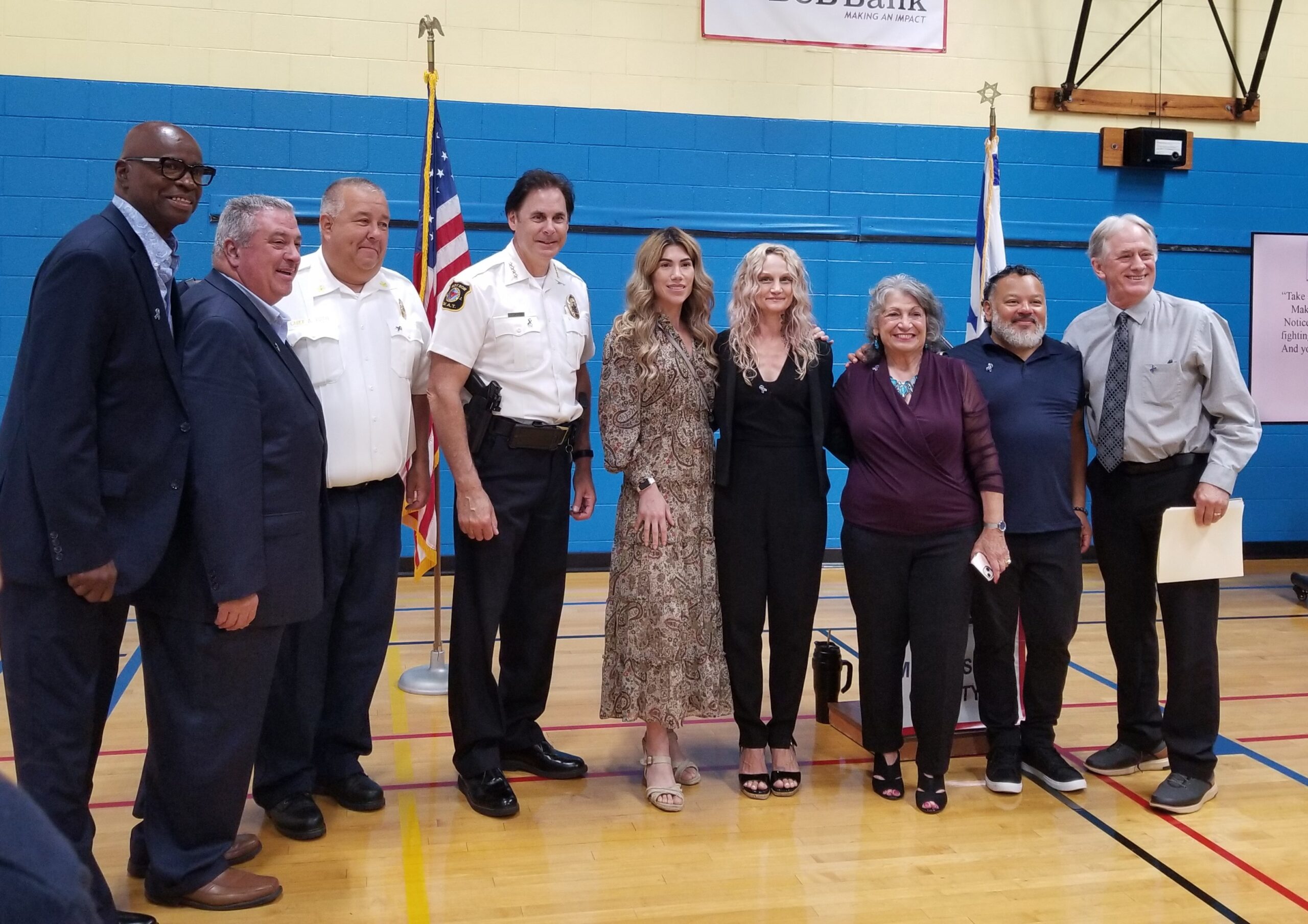 On September 6th, William Stover, LCSW, JFS’ Associate Executive/Clinical Director, joined a panel of speakers at “Help and Hope: Suicide Prevention Awareness,” co-hosted by the JCC of Middlesex County and Edison Arts Society. The event emphasized the importance of open and direct communication to support those dealing with suicidal thoughts, reduce the stigma around mental health, involve parents, and recognize suicide warning signs.
On September 6th, William Stover, LCSW, JFS’ Associate Executive/Clinical Director, joined a panel of speakers at “Help and Hope: Suicide Prevention Awareness,” co-hosted by the JCC of Middlesex County and Edison Arts Society. The event emphasized the importance of open and direct communication to support those dealing with suicidal thoughts, reduce the stigma around mental health, involve parents, and recognize suicide warning signs.
Recent years have seen higher suicide risks for children as well as those aged 40-50, making suicide a pressing public health issue. Identifying warning signs and offering nonjudgmental support is crucial. One key takeaway emerged from the evening’s presentations: most people contemplating suicide are uncertain about their decision. They waver between the idea of ending their life and seeking help. This knowledge underscores the importance of checking in with those we suspect may be in crisis, catching them during these moments of ambivalence, and encouraging them to seek professional support or call 988, the Suicide & Crisis Lifeline, for immediate assistance.
Each speaker shared insights and resources on how to increase suicide awareness and engage individuals struggling with mental health in the home and across communities. As a counselor, Bill Stover emphasized the importance of helping individuals on the brink of despair to delay their fateful decision. His message was clear: reassure them that they are not alone, that people genuinely care, and that the wisest choice is to grant themselves another day. Empathy and intervention can offer hope. Prepare with a safety plan and learn the 5 action steps for aiding someone in emotional pain. Your support could be a lifeline.
Event Highlights: (Download PDF Here)
The “Help and Hope: Suicide Prevention Awareness” event held at the JCC of Middlesex County in Edison, featured notable speakers and advocates who shared their insights and experiences to address the pressing issue of suicide prevention. Here are some of the event highlights:
- Importance of Youth Empowerment: Keynote speaker, Brian Taylor –former NBA/ABA player, coach, and youth educator—spoke on the importance of aftercare and community programs to help engage youth in their communities, build interpersonal skills and foster a sense of belonging. Through the Brian Taylor Leadership Institute, Mr. Taylor advocates for youth to have a supportive circle, to reach out to in times of distress.
- Parental Involvement and Open Communication: Bill Spadea, media personality and NJ 101.5 host, emphasized the crucial role of parents in their children’s lives. He encouraged parents to be open and prepared to have challenging conversations with their children to promote their well-being. Seeking community resources and professional support when a child’s mental health is at stake was underscored as essential.
- Destigmatizing Mental Health: The Mayor of Edison, Sam Joshi, advocated for destigmatizing mental health issues. Mayor Joshi spoke on building safer and more tolerate environments to encourage youth struggling with their mental health to share their experiences without fear of shame or judgment.
- Advice for Supporting Those in Emotional Pain: William Stover, LCSW, Clinical Services Director of JFS Middlesex, emphasized the importance of tackling the difficult conversation surrounding suicidal ideation. He stressed that not all individuals who contemplate suicide exhibit visible signs, and many, including both youth and adults, may hide their struggles. The key takeaway was to encourage individuals considering suicide to delay their decision and provide immediate support to let them know that people care. See the resource section for more information on identifying the warning signs.
- Identifying the warning signs: To identify suicide warning signs: Listen for expressions of hopelessness, observe behavioral changes like isolation or giving away possessions, and note mood swings. Pay attention to self-harm, sudden personality shifts, or a loss of interest. Seek help if you see these signs, especially among those who are at high risk. Important: It’s crucial to understand that not everyone who is contemplating suicide will openly express it. Silent suffering or ideations are common, so being attentive to behavioral and emotional changes of a loved one is equally important in identifying those at risk.
- Recognizing Ambivalence: It was noted that most people who contemplate suicide are uncertain about their decision. They often waver between the idea of ending their life and seeking help. Checking in with people suspected of being suicidal is crucial to catch them during moments of vulnerability.
- Demonstrating Care and Support: The overarching message of the event was to show care and support for those struggling with mental health issues within your circle. Additionally, attendees were encouraged to check in with others if they noticed changes in their behavior, as this could be an indicator that someone might be in crisis. If someone you suspect is contemplating suicide, it’s important to prepare and know what resources are available in your community to help them; to minimize access to harmful objects (gun, poisons, or sharp objects) and encourage them to delay their decision to allow time for them to speak with a professional.
Resources:
- Teen Suicide Prevention Infographic
- New Jersey Youth Suicide Prevention – https://www.nj.gov/dcf/adolescent/prevention/
- 988 Suicide & Crisis Lifeline – https://988lifeline.org/how-we-can-all-prevent-suicide/
- NJ Health – Suicide Prevention –https://www.nj.gov/health/suicide/helpme.shtml
Safety Plans: Keep a safe environment by developing a plan with a licensed counselor to limit access to any items that may cause self-harm.
Identifying the Warning Signs of Suicide
- Help and Hope for Those at Risk for Suicide (RWJ Barnabas Health)
- Risk factors, protective factors, and warnings signs (American Foundation for Suicide Prevention)
- Suicide Prevention (Office of Women’s Health)
